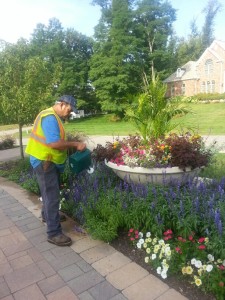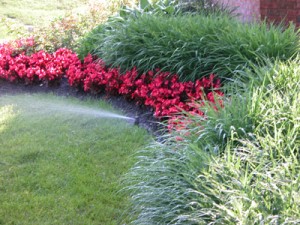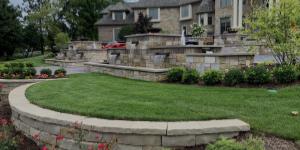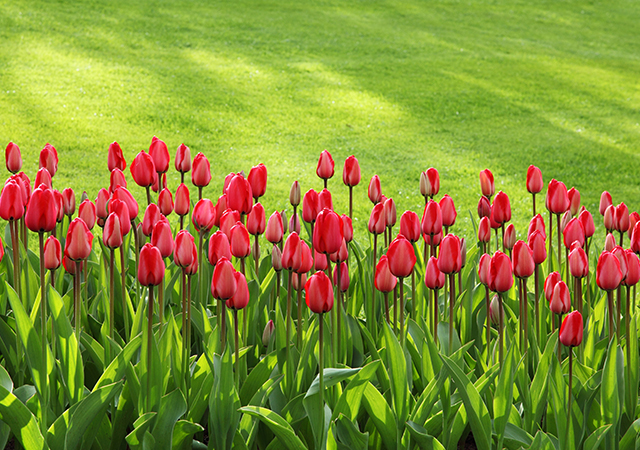Q: How do I know when to water? Can I water too much?
 There is nothing more important than watering your garden properly. As easy as it may seem, watering can be a bit tricky. There’s no perfect answer and the garden and conditions are always changing. It’s best to not wait until you can see signs of stress in your plants. If plants start struggling, sometimes it’s an uphill battle to nurse them back to health. Watering as an ongoing process throughout the growing season that needs to adjust based on environmental conditions. Just follow these easy tips to keep your plants healthy and happy.
There is nothing more important than watering your garden properly. As easy as it may seem, watering can be a bit tricky. There’s no perfect answer and the garden and conditions are always changing. It’s best to not wait until you can see signs of stress in your plants. If plants start struggling, sometimes it’s an uphill battle to nurse them back to health. Watering as an ongoing process throughout the growing season that needs to adjust based on environmental conditions. Just follow these easy tips to keep your plants healthy and happy.
1. Water in the early morning or evening when the sun is not as hot and the winds are calm. This will decrease the chance of water being lost to evaporation. You will not have to water as long or waste any water due to the hot sun or wind.
2. When watering your plants fill the entire root zone with water and then allow the soil to dry out partially before the next time you water. The amount of drying depends on the plant species and size. Large trees and shrubs can dry several inches down in the soil before re-watering. A small or newly established plant cannot withstand the stress of drying out and will need to be watered more frequently. Not all plants are the same, so take a little time to check on smaller plants more frequently. If you or your irrigation system is watering all of your plants equally, then you will undoubtedly lose some of your plants to over-watering or under-watering. If you do have an irrigation system, talk to the irrigation specialist to see what the plan is for these areas.

3. The basic rule of thumb is to provide an inch of water per week for most plants and lawns. The overall concept is to keep the soil moist and to not let it dry out completely which would cause a stressful environment. There are always exceptions to every rule though. Here are a few:
a. Extreme hot weather, crowded plantings, containers, or looser sandy soils, may need more than an inch of water a week.
b. The opposite is also true. If it is cool, plants are spaced farther apart, or the soil is more clay, then less than an inch of water a week may be necessary.
c. New plantings require more frequent watering to get their roots established. You should water lightly but more often.
d. Mature plantings with deeper root systems need more thorough infrequent soakings. This will encourage roots to reach deep into the soil. Shallow watering keeps roots close to the surface leaving plants susceptible to drying out more frequently.
4. Plants that are under eaves close to the house or under mature tree canopies will need special attention because they are receiving little or no rainwater. Make sure to check on these to see if they need some extra watering.
5. Purchase an inexpensive rain gauge and place it in an open area of the garden to keep track of rainfall each week. Adjust supplemental watering based on rainfall quantities. Rain gauges can also be helpful to keep track of how much is supplied by overhead sprinklers. Water can be distributed unevenly with sprinklers so you may have to set a couple of gauges around to be more accurate. Set up one closer in to the sprinkler and one farther out. Adjust the location of the sprinkler if one area is receiving too much or too little water.
6. Plants need oxygen in the soil in order to grow. When plants are over-watered the void spaces in the soil that are filled with necessary oxygen are now filled with water. Without enough oxygen the plants roots will suffocate and die. Symptoms of stress above ground that you can watch for are: wilting, yellowing, drying foliage, leaf drop and twig dieback. These symptoms are similar to when a plant is too dry. If you notice stress in your plant, dig down around the base of the plant. If the soil is soggy and filling in with water you are over-watering. If the soil is cracked and dry, you need to water more frequently.
If you’re unsure if your irrigation is set up properly or have some plants that look like they might need a little help, give us a call at 815.459.7926 or email Sarah at svermett@rycolandscaping.com.





